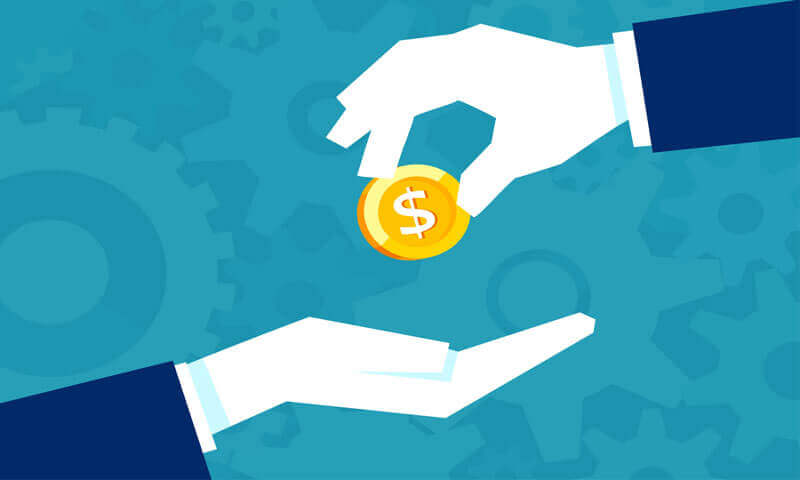With all the recent leaks by Snowden and others about the NSA and how it has been spying on so many American citizens, we wanted to find out how people around the country felt about this. We wanted to know if they felt like this was necessary, or whether it was a violation and invasion of their rights as American citizens, and their general thoughts on these newly revealed surveillance techniques. The opinions expressed below are from regular people, and if you would like to share your thoughts on this topic, please feel free to do so below the article.
My business is security. Privacy is a secondary concern. And while the news of NSAs activity’s is alarming to most, it’s not surprising to those inside both the security and privacy communities.
The NSA has been actively cracking codes since the 50’s. They do this because bad people intend on doing bad things and without inside knowledge of the chatter, many more bad things would have and will occur.
Robert Siciliano CEO of IDTheftSecurity.com
The answer is deeper than the question. The Wild Card is we never know who we are dealing with, what drives someone. I was trained as a profiler by Dr. Phoebe Kelsoe. Her lessons chilled me then as to ‘knowing’ people and predicting what they will do. Invasion of our rights? If it was data given in a public format NO. IF it was data given with an implied, stated expectation of Privacy – YES! Is it just Snowden in this conversation- NO. The Guardian, Times, Gruenwald…. list goes on. If you want privacy, stay offline, use pencil and paper, and, as the military used to do … when you see them coming? Chew fast.
Carrie Devorah
I think the big issue here is not necessarily that intelligence agencies are getting access to information, but rather that we as citizens do not know enough to make reasonable approximations of how private any individual communication might be.
It used to be pretty simple – if you picked up you as a U.S. citizen picked up a U.S. phone and called another U.S. citizen on a U.S. phone, you could feel fairly confident that a warrant would be necessary to tap that call. If either the caller or the phone number were international, you knew that protection wasn’t necessarily there. Technology has made this far more confusing. A website you visit might have a .com domain but be hosted overseas. It might be hosted in the U.S. but owned by a foreign company. The phone number you call might be a U.S. number on a VoIP connection in another country. Where it used to be fairly easy for an American to determine when they were treading over borders, it is now transparent, seamless, and nearly impossible to discern.
This, in my opinion, is what is so insidious. It is not merely that we didn’t know the NSA was peaking in, but that we can’t know how and when they might. As Americans, we can’t take reasonable steps to protect our privacy when we are prevented from knowing how our government classifies communication as domestic or international.
I am actually not opposed to the majority of programs that Snowden has revealed, nor am I surprised at their existence. However, I do feel our government ought to invest equal energy in empowering us to protect our privacy as they have in empowering intelligence agencies to invade it.
Russ Jones, CTO
Virante Inc.
Our privacy as Americans has been eroding for years – from companies who are able to scrape public data on social networking sites to pulling property records to determine where you live, and determining where you work based on your email address and forums you post in.
It is important that people realize everything they put out there on the internet is out there forever – and it is not just the government or one organization (though clearly they have resources to gather more data than anyone else) – it is the entire online landscape that is changing. From checking in to posting pictures on instagram of your food and your view, the amount of privacy people are giving up (without realizing it) is something Americans are only now coming to terms with.
Tracking phone calls, and mining private conversations is something I see as a violation of my personal privacy – but the larger trend of collecting data and the power of computer processing for publicly available data is a trend that I think also bears watching.
Sid Savara (writer at SidSavara.com)
Thank God for Snowden. History will prove him to be a true hero. Had he not revealed what he discovered, we may never have found out about the illegal spying on American Citizens by the NSA. And we as citizens are the ones paying to help create our own electronic jail!
They say the reason for this Machiavellian overreach is for our security. I don’t buy it. I believe it is for the purpose of creating a worldwide total surveillance society in order to have power over all of the citizens of the earth. Not so far-fetched or a “conspiracy theory” as it may have once been considered. Power corrupts. The NSA needs to be severely curtailed in their quest for total omnipresent spying. Let’s cut back their funding.
Paul Mikoloski
I wrote up my thoughts on the NSA scandal, set it aside, and then came back to proof it … Well it was full of dangerous keywords that I’d rather not take a chance and send across the internet. So I deleted it. I guess you could say the NSA scandal has chilled my speech.
Mike Poller
Poller & Jordan Advertising
The US has a long tradition of eavesdropping on its citizens, so the revelations in recent months via the Snowden links shouldn’t surprise many. I recall the movie, “Enemy Of The State,” in which Will Smith’s character is under surveillance by the NSA. That movie goes into considerable detail about the lengths of spying the federal government was then capable of. Hollywood and numerous government agencies, in particular the DoD, have a long history of working together dating back World War II.
There is also the NSA monologue by Matt Damon’s character in “Good Will Hunting,” about why he shouldn’t take a job with the NSA.
On the other hand, Snowden brought it into global brain, which is a big change. Before Snowden, people didn’t openly accept the fact that the “world wide web” is just that: “a web.” It’s a web of information. Your information. My information. All of our information.
Protests have cropped up all over the world in response to US wiretapping, etc., particularly in Germany where they have recent history with totalitarian regimes both under Hitler and the Eastern German Government.
What the NSA is truly capable of none of us can really know. It’s even openly admitted that SHA-2 encryption, which includes SHA-256, the encryption grade of Bitcoin, the decentralized digital currency, was developed by NSA developers. This leaves much of the popular encryption techniques used today in a sort of gray area where nobody can truly know how private their communiques are.
It’s all something to keep in mind while “surfing” the web.
Justin
As an individual, I believe that the federal government has to do many things that should and must be kept confidential for our own national security and for those who put their lives on the line to protect our country against those who want to terrorize and destroy it. It is my personal opinion that Snowden is a traitor and a coward for disclosing confidential information. Businesses enjoy the right to protect their private and confidential information. The federal government should also enjoy such a right. Snowden broke many laws in disclosing what he knew to be confidential information and should be held accountable for his actions.
We should all remember that the right to privacy is not absolute. There is always a balancing of interests that must be made when one’s right to privacy is at odds with some other competing interest. For example, stopping human trafficking, child pornography or violence. Our great nation’s security is a competing interest to individual privacy as well. I am not at all offended by the NSA’s efforts to protect many of my rights as an American citizen, including living in a safe and free country, even when those efforts may “infringe” on my “right” to speak with a known or suspected terrorist. First, I would never knowingly speak with a terrorist. If my “right to privacy” is somehow affected if I am speaking with a known or suspected terrorist, then so be it. In my personal opinion, it is a small price to pay to catch terrorists and to live in the greatest country in the world. Frankly, the NSA has multiple safeguards to my privacy in such an instance, and that component of any monitoring activities if often forgotten or ignored, but should be recognized and remembered.
Michelle Lee Flores
Lawyer







































